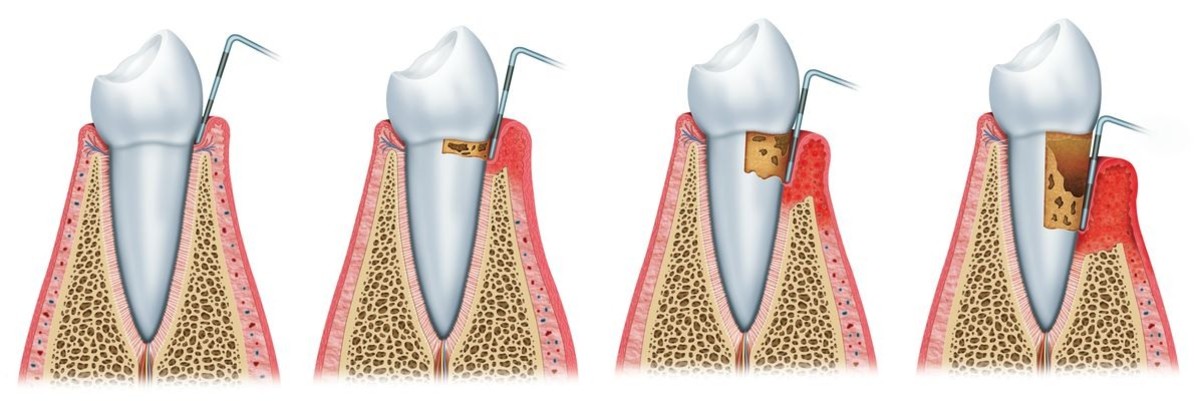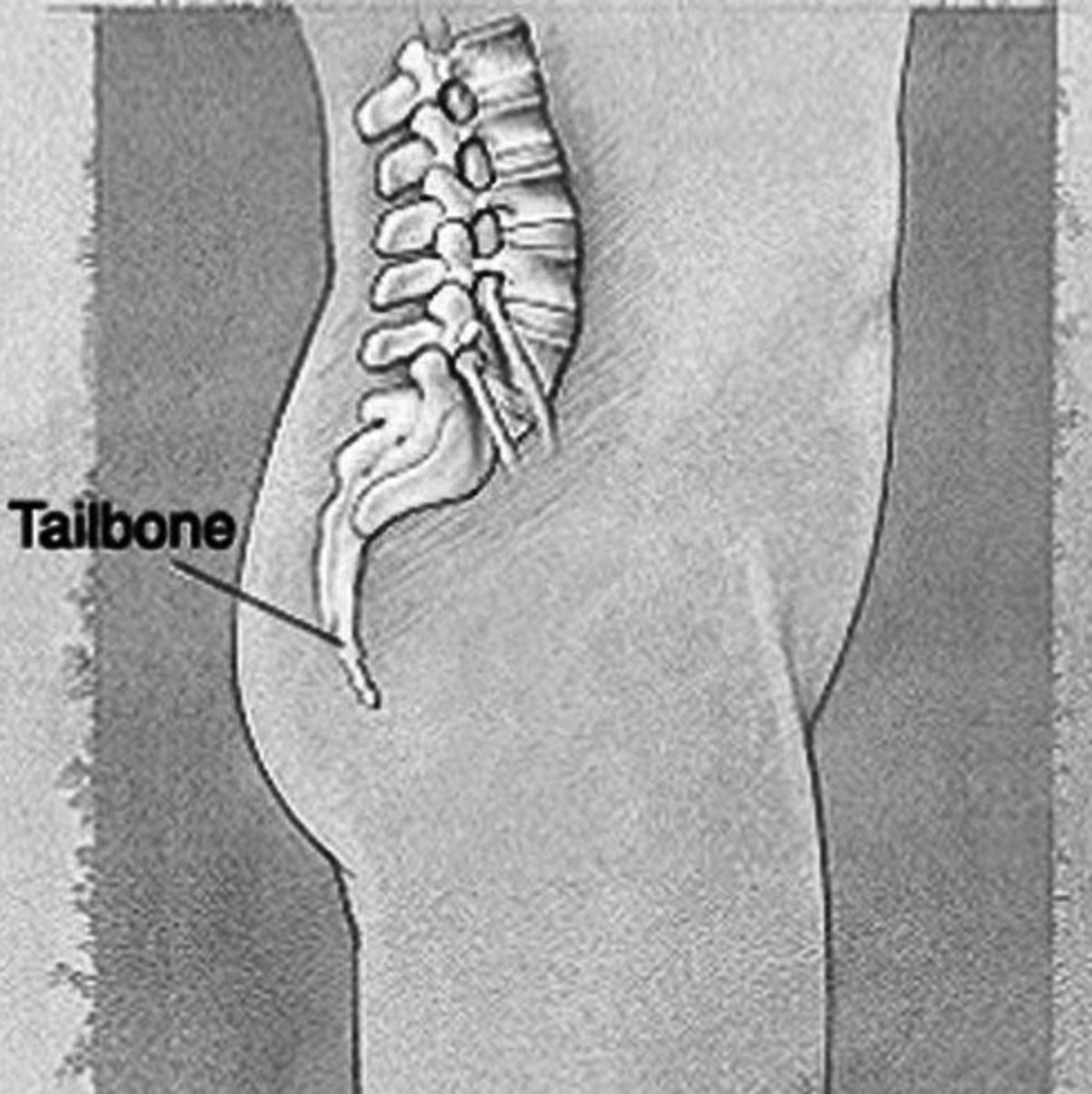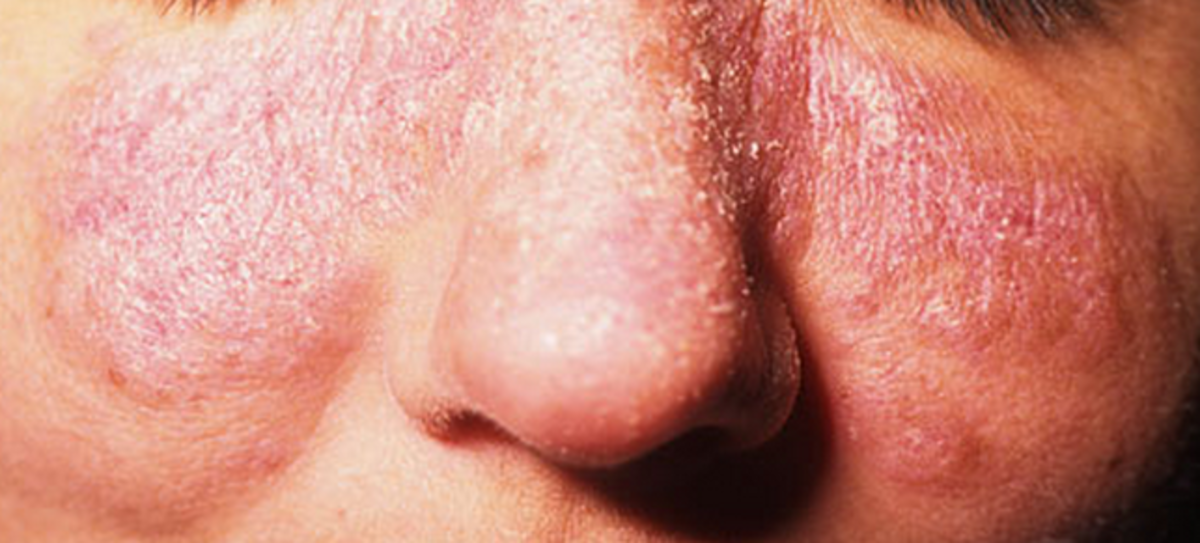Periodontal Disease: A Risk for Some Serious Dseases

The word periodontal is composed of “perio” that means around and “donto’ refers to teeth. So, periodontal disease is caused due to infections of the structures around the teeth, which include the gums, periodontal ligament and alveolar bone. In the earliest stage of periodontal disease, gingivitis that is the infection of the gums takes place. In more severe forms of the disease, all of the tissues are involved. However, it is important to note that all gingivitis doesn't lead to periodontal disease. Periodontal disease is caused by bacteria in dental plaque, the sticky substance that forms on the teeth a couple of hours after you have brushed. In an effort to eliminate the bacteria, the cells of the immune system release substances that cause inflammation and destruction of the gums, periodontal ligament or alveolar bone. This leads to loosening of the teeth that is a sign of severe periodontitis, an advanced stage of disease.
Periodontal disease and inflammation -
The oral health and general health are intertwined because of inflammation, which is a common factor in both. In the acute phase of inflammation, the response is rapid and of short duration. If the insult or injury is not resolved, the response becomes chronic, which can be considered as pathologic.
When inflammation becomes chronic, it is likely to give rise to a number of diseases.
Some common disease caused by periodontal disease –
Cardiovascular disease -
The cardiologists, periodontists and other health professionals agree across the board that there exists a link between gum disease and cardiovascular disease.
It has been found that inflammation caused as a result of periodontal disease is associated with the development of atherosclerosis. Inflammation plays a critical role in cardiovascular disease as the inflammatory cascade is particularly important in the atherosclerotic process.
While a cause and effect relationship has not been established, the research points out that periodontal disease increases the risk of heart disease and stroke. In addition, periodontal disease can exacerbate the existing condition. Sometimes periodontal disease might be an early sign of cardiovascular problems.
Type-2 diabetes –
Severe and progressive periodontitis is also recognized as an important risk factor for diabetes and vice versa. Both diseases are thought to share a common origination and development that involves an enhanced inflammatory response that can be observed at the local and systemic level.
Rheumatoid arthritis –
It has been observed that people with rheumatoid arthritis tend to have more periodontal disease and people with periodontal disease tend to have more rheumatoid arthritis.
The researchers studying the rheumatoid arthritis and periodontal disease connection have found likenesses in the joint and oral tissues as well as in the inflammatory processes that affect them.
The research has also shown a genetic link between the two. In a study published in Journal of Periodontology, the scientists in Israel found HLA-DR4 – a genetic type that occurs with high frequency in people with rheumatoid arthritis – in 8 out of 10 patients with rapidly progressive periodontitis, compared to just a little over a third of a healthy control group.
Respiratory diseases –
The bacteria that cause respiratory diseases like bronchitis and pneumonia may come from the oral cavity as well as any existing periodontal disease. Therefore, poor oral hygiene can allow for an increase in these bacteria. Those with a compromised immune system may be at greater risk for this problem.
Pregnancy –
Pregnant women with periodontal disease may be at risk of adverse pregnancy outcomes such as giving birth to a pre-term or low-birth weight baby.
Alzheimer's disease –
When the oral bacteria reach the brain, they may trigger an immune system response, which could be one of the mechanisms that lead to changes in the brain, which are typical in Alzheimer’s disease.
The researchers at Broegelmanns Research Laboratory, Department of Clinical Science, University of Bergen (UiB) have found the DNA-based proof that the bacteria causing gingivitis can move from the mouth to the brain. The bacteria produce a protein that destroys nerve cells in the brain, which in turn leads to loss of memory and, ultimately, Alzheimer´s.
Common tips for prevention of periodontal disease –
Below are enumerated some tips for the prevention of periodontal disease –
- The best way to brush is by placing your toothbrush at a 45-degree angle against your gums and gently moving it in a circular motion, rather than a back-and-forth motion. Grip the toothbrush like a pencil so you won't scrub too hard.
- Brush your teeth when you get out of bed after sleep in the morning and before going to sleep at night. That’s because saliva, which keeps cavity-causing plaque off teeth, dries up at night, so it’s best to have all plaque cleaned off the teeth before sleep. It’s also important to brush first thing in the morning to brush off plaque and bacteria that may have built up as you slept.
- Use fluorinated toothpaste because fluorine helps to harden enamel and reduces risk of tooth decay.
- One major cause of bad breath is the buildup of bacteria on the tongue, which a daily tongue scraping will help banish. In fact, using a tongue scraper is more effective than brushing your tongue with a toothbrush.
- Change the toothbrush or head of electric toothbrush every two to three months. Otherwise, you will transfer bacteria to your mouth.
- Gargle with apple cider vinegar in the morning and then brush as usual. The vinegar helps remove stains, whiten teeth, and kill bacteria in your mouth and gums.
- You can also use salt as alternative toothpaste. Just be sure to spit it out so it doesn't count as sodium intake! Also, if your gums start to feel raw, switch to brushing with salt every other day. Now many brands of toothpaste are available with added salt.
- Floss your teeth everyday using slow and gentle sawing motion.
- Foods that are firm and crisp clean teeth when eaten. Such foods include apples (otherwise known as nature’s toothbrush), raw carrots, celery and popcorn. Make such foods the final food you eat in your meal if you know you won't be able to brush your teeth right after eating.
- Limit acidic drinks such as soft drinks etc. because they soften tooth material and dissolve the minerals in tooth enamel, causing holes (cavities or caries). In severe cases, teeth may be ‘eaten’ right down to the gum.
- Limit sugary foods because bacteria in dental plaque change sugars into acids.
- Avoid using your teeth for anything other than chewing food. If you use them to crack nuts, remove bottle tops or rip open packaging, you risk chipping or even breaking your teeth.
- See your dentist for regular check-ups. You should also visit your dentist if you have a dental problem such as a toothache or bleeding gums.
The bottom line -
Studies have found an association between periodontal disease and several serious illnesses including heart disease, stroke and lung diseases.
We all have to be cognizant of the potential association of periodontal disease and some serious diseases so that we can take preventative measures to prevent the onset periodontal disease.
Reference -
The University of Bergen. "Brush your teeth -- postpone Alzheimer's." ScienceDaily.
ScienceDaily, 3 June 2019. <www.sciencedaily.com/releases/2019/06/190603102549.htm>.








